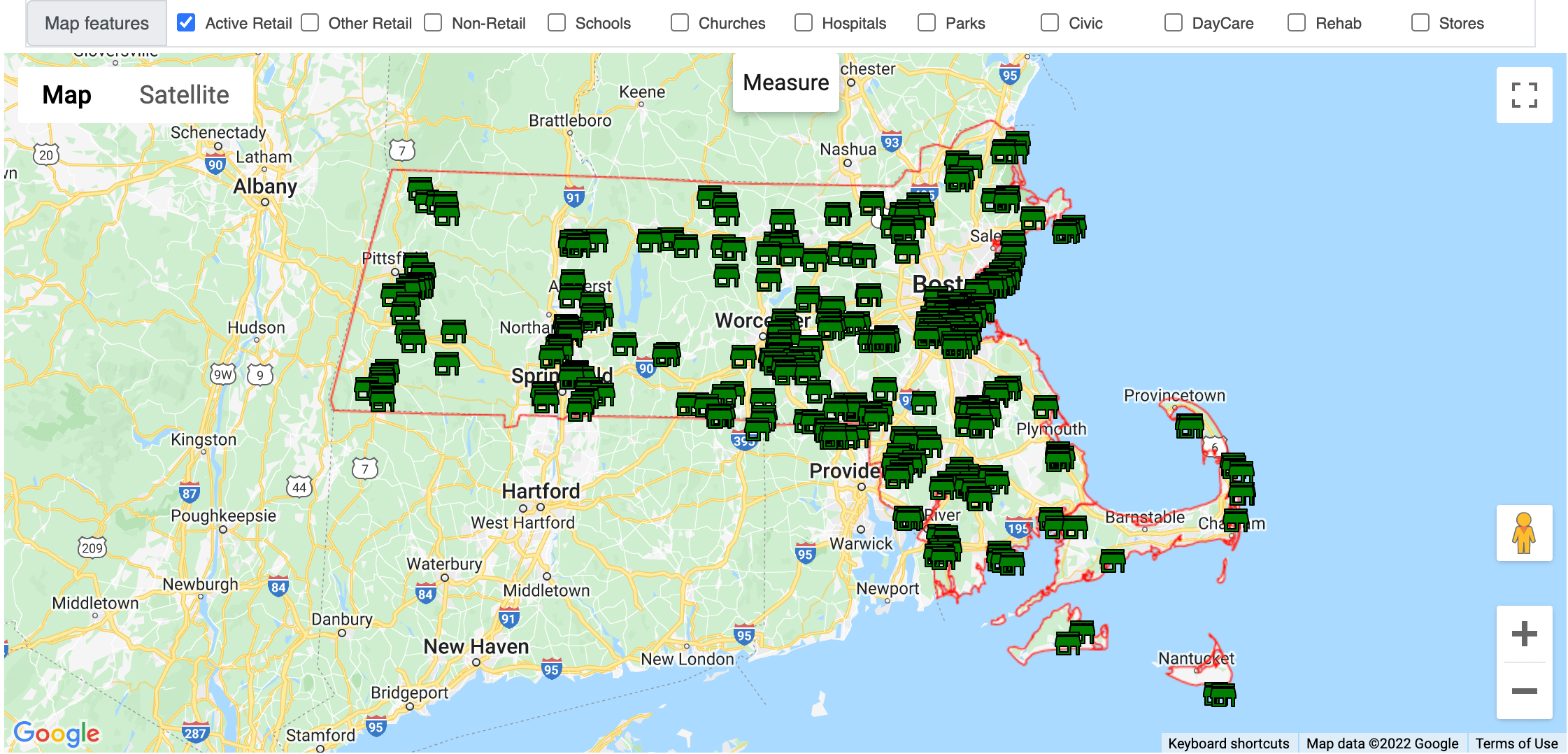The Good and Bad of Massachusetts’ Successful Adoption of Adult-Use Cannabis Legislation
Massachusetts approved the legalization of recreational, adult-use cannabis by ballot measure in 2016, making it one of the earliest states to do so. Since then, the rollout of the business there has gone well, and the state is often held up by those in the industry as an example of how things should be done. It certainly seems that way, but that doesn’t mean there aren’t problems. As is the case in all states with adult-use laws, Massachusetts regulators have been keeping a close eye on the market as it develops. They have identified both things they have done well and some issues that need to be addressed. Their observations, combined with the OBEDIO™️ data and analysis available at thcregs.com contain some interesting lessons for both potential investors and regulators in new and developing markets.
There’s enough bad news in the world at the moment, so let’s start with the positives.
Cannabis Businesses Have Been Well Received
One of the things that Massachusetts regulators have focused on since the early days is the publication and promotion of the facts around cannabis businesses as they have become established. That is an important thing to do because there, as in other markets, the data and facts contradict what many people “feel” should be true. They feel that, obviously, cannabis businesses will increase crime and reduce property values, for example, neither of which have been observed to have happened in Mass., or elsewhere for that matter.
There are always some people who will ignore evidence and trust their feelings more than the facts no matter how clearly presented, but they are in the minority. When given the facts, it turns out that Massachusetts residents will form informed opinions. A recent UMass Amherst poll showed that 61% of respondents believe that adult-use laws have been an overall positive for the state. Given the controversial nature of the business, that is a big number, and it will make growth in the industry a lot easier than it otherwise might have been.


Save time and money. Not only in Massachusetts, zero in on favorable locations and opportunities in over 7,500 jurisdictions across the country. Simple and reasonable monthly pricing. Only at THCREGS.com
A Fast-Growing Industry
That growth so far has been spectacular. From $444.9 million in 2019, the first full year of adult-use retail, sales grew to $702 million in 2020, then soared to $1.33 billion last year. That led to a situation where, last year, for the first time, the state collected more revenue from cannabis sales than it did from alcohol. Some of that growth has come as more locations have opened up, but one of the main drivers recently has been the success of delivery services that were rolled out last year. That is significant for both potential investors and regulators in other markets as they open up. Home deliveries increase sales and therefore revenue for states and localities, while offering good growth for investors.
As indicated earlier, though, as successful as Massachusetts has been in establishing and growing adult-use cannabis businesses, the process hasn’t been without issues.
A Few Problems
Even with a robust public information campaign, opposition to the industry exists and it is important that legislation and regulation address some of the complaints or even, in an ideal world, get ahead of them. For example, Massachusetts took what with hindsight looks like a strange and mistaken decision to treat the newly legalized cannabis in a different way from alcohol when it comes to DUIs. That is being rectified, but unfortunately it took the death of a State Trooper, Thomas L. Clardy after being hit by a cannabis impaired driver during a routine traffic stop, to prompt a tightening of the laws and their enforcement.
I understand that those that wrote those early laws were trying to avoid a shift back towards a “war on drugs” mentality, where strict enforcement of strict laws ended up being both discriminatory and hugely expensive, but public safety has to be a priority in states that attempt to emulate Massachusetts’ success. Marijuana may not prompt the aggressive or destructive behavior associated with alcohol, but it can impair driving at least as much, and that has to be recognized in both legislation and enforcement.
Access to Capital
In recent interviews with Massachusetts Cannabis Commissioners, all of those interviewed identified access to capital as the biggest issue facing the industry when asked what that might be. In large part, this is something beyond their control. As long as federal law lags behind what is happening at the state level, access to traditional banking and therefore capital sources will remain restricted. A more streamlined license application and issuing process would help, as would industry specific capital and investment pools at the state level, but ultimately, federal law needs to get on the right side of history here.
As you might expect, the lack of access to capital impacts those that the adult-use laws are trying to help, communities of color and those disproportionately impacted by the war on drugs, the most. It is no surprise, then, that worse than expected progress in helping those priority communities gain a foothold in the business is another problem identified by the Commissioners. The solutions here, though, are basically the same as for other issues. Encourage a change in federal law, get in front of possible objections to new businesses, observe and make necessary changes, and look at your own processes to seek state level help, and you have a chance of achieving what you set out to do.
Those aren’t just the keys to achieving the desired results in terms of social equity, either. What the three plus years of retail, adult-use marijuana sales in Massachusetts show is that, if regulators do those things, the business can get public approval and grow quickly, creating some good opportunities for investors and a situation where everybody wins.